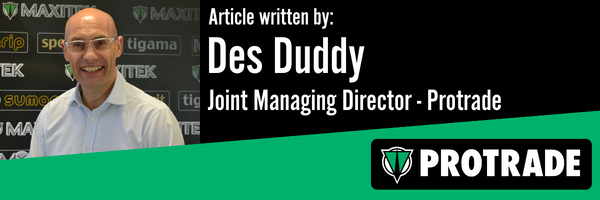Supply Chain Issues & Profiteering during the Covid-19 Pandemic
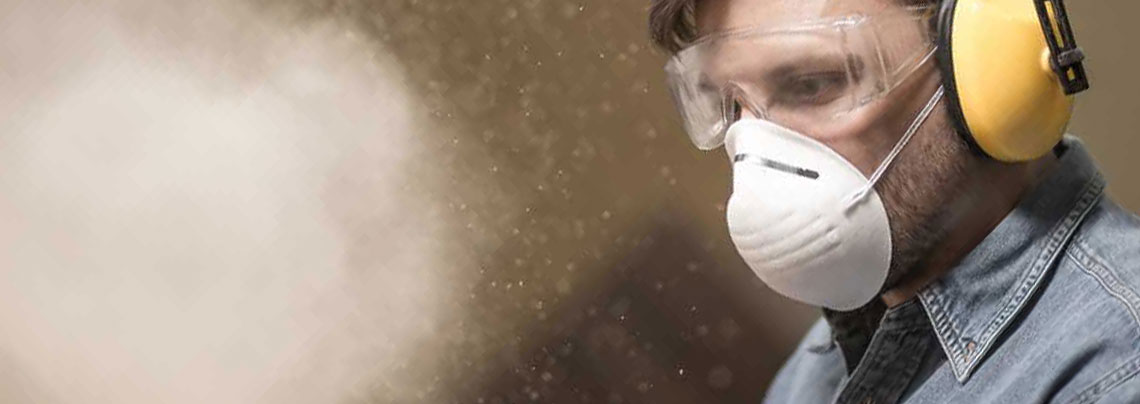
Since the outbreak of Coronavirus in early 2020, we have seen prices of many personal protective equipment or PPE items increase significantly.
We all know about the economic models of supply and demand, and when you have a product that is in short supply that literally protects and saves lives of millions of people around the world during a global pandemic, the prices are only going to go in one direction.
If the commodity was a luxury item such as gold, you’d probably accept the situation… but when it’s life-saving equipment for people trying to stay safe at their place of work – suddenly the situation becomes much more emotive. There is no doubt in my mind that a number of people and organisations are taking advantage of the situation to ‘line their pockets’… but who is responsible?
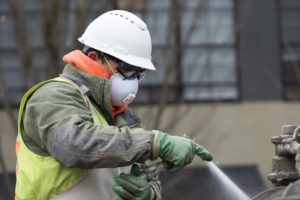
I recall having conversations with my procurement team at the start of the year, when we first started to see increased demand, initially for European manufactured FFP2 and FFP3 safety masks. In one single weekend in February 2020, we saw an unprecedented amount of orders through our website… predominantly required in the Far East where Covid-19 was just taking hold in certain regions of China. Literally tens of thousands of pounds worth of orders that we couldn’t fulfil… we simply didn’t have the stock and due to identical scenarios around the UK and Europe, the wholesalers and manufacturers were either running low or rationing their products to avoid stock piling. My challenge to the procurement team… find us some safety masks before the country runs out!
At the same time, I instructed our digital marketing team to remove all dust masks from the Protrade website… what stock we did have had to be quarantined for our contractual obligations with key customers and the message from the PPE manufacturers was that all their volumes were now going into healthcare provision… what little stock by comparison we had in our stores, had to be directed towards keeping our customers working and the UK construction industry moving. Although the marketplace value of this stock had increased exponentially overnight, we continued to sell it at pre-agreed rates… until every mask was exhausted.
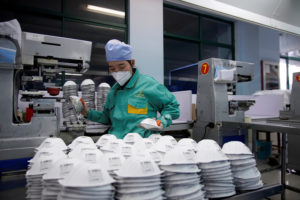
In the meantime, how was the procurement team getting on with their challenge to find some masks? Two of our main suppliers had run out and were taking no orders… a situation that remains the same to this day with no confirmed light at the end of the tunnel. Their overseas manufacturing facilities had been commissioned by the government authorities with strict instructions to only supply products within their own countries! Another well-known supplier with UK based manufacturing, was pumping significant volumes into the NHS and other UK healthcare providers, and rightly so, with very limited supply reaching the construction industry. The situation was identical for every single PPE safety mask supplier, in both the UK and Europe. Our stocks were nearly gone and customers needed to keep working – especially the ones that had contracts with the National Health Service.
The only solution was to contact second or even third tier suppliers, in an attempt to procure what was required. We had to be careful because by now, China was on the road to recovery and their manufacturing had restarted. FFP2 safety masks were becoming available once again, either directly or via European based wholesalers… but were they legal and was their supporting documentation with regard to safety standards genuine. To make matters worse, a mask that used to cost less than one euro was now demanding upwards of five euros each… and that was before freight costs. Unbelievably, they couldn’t produce them fast enough! How could they justify a 400% increase… and more importantly, how could we justify such an increase to our customers? My immediate reaction was… forget it!
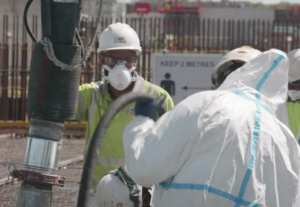 Fast forward a couple more weeks; now we’re completely out of safety masks. Key customers are demanding a solution to keep working, complete jobs and avoid penalty clauses. So, we tentatively disclose to them that we can ‘get hold’ of safety masks, but they are four-times the price. Fully expecting a terse ‘no chance’ response, we are greeted with a resounding ‘Yes, Yes, Yes… just get me some dust masks please. That increase is not too bad compared to some of the prices we’ve been quoted from other suppliers’. OK… let’s just order a couple of thousand initially – gone in a week! Let’s get another 2000 – gone in another week! Right; let’s get 4000 now – but what happens if the pricing returns back to ‘normal’? Who knows… futures trading is not something we’ve ever had to even consider in nearly fifty years of trading – these times really are unprecedented. Do it… get another 4000 and have an offering for our entire customer base… seemed like a sensible decision as we’d be one of the few construction supply companies in the UK to actually have stock.
Fast forward a couple more weeks; now we’re completely out of safety masks. Key customers are demanding a solution to keep working, complete jobs and avoid penalty clauses. So, we tentatively disclose to them that we can ‘get hold’ of safety masks, but they are four-times the price. Fully expecting a terse ‘no chance’ response, we are greeted with a resounding ‘Yes, Yes, Yes… just get me some dust masks please. That increase is not too bad compared to some of the prices we’ve been quoted from other suppliers’. OK… let’s just order a couple of thousand initially – gone in a week! Let’s get another 2000 – gone in another week! Right; let’s get 4000 now – but what happens if the pricing returns back to ‘normal’? Who knows… futures trading is not something we’ve ever had to even consider in nearly fifty years of trading – these times really are unprecedented. Do it… get another 4000 and have an offering for our entire customer base… seemed like a sensible decision as we’d be one of the few construction supply companies in the UK to actually have stock.
But whilst some customers were thankful and applauding our endeavours to enable them to work, others that were not aware of the situation, were far from happy. One of our loyal customers took to social media to lambast our apparent ‘overcharging’, and on the face of it he was absolutely right. Although his figures were either misinterpreted or slightly exaggerated, nearly £100 for a box of disposable safety masks was indeed expensive… especially compared to the rates only three months prior. His post was followed by comments such as ‘greedy bastards’ and ‘bloody shocking’… had our decision to pay over the odds for a short-term solution backfired? Upon reading the comments, I found myself looking at the computer screen saying ‘it’s not our fault – we had to begrudgingly pay through the nose for them too’!
As Managing Director of Protrade, any negative comment aimed at my company is taken personally. Although I have to understand that it is not always possible to get the full message across to our entire customer base, a better understanding of what’s been going on throughout the supply chain certainly helps. The second part of this blog will hopefully make things much clearer.
You couldn’t make it up… genuinely as I write this blog, a notification has just popped up: an email from a reputable UK and Ireland based wholesaler offering me FFP2 masks at a eye-watering €8.50 or £7.65 each… that’s the cost price even before considering what margin to add to make purchasing them viable… crazy times!
So who is ultimately responsible for the incredible price hikes in personal protective equipment?
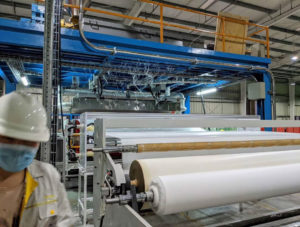
Safety masks are predominantly made from a material called SMS; a tri-laminate structure with a spunbond polypropylene top layer, a middle layer of meltblown polypropylene and a bottom layer of spunbond polypropylene – hence the abbreviation SMS. The composite fabric provides excellent physical properties in terms of strength and elasticity, along with barrier qualities that prevent leakage of very fine particles, micro-organisms and even liquids. Not only are safety masks made from this material, but also disposable coveralls and anti-bacterial wipes… two more product categories that have incurred enormous price increases due to their crossover with healthcare requirements and subsequent short supply.
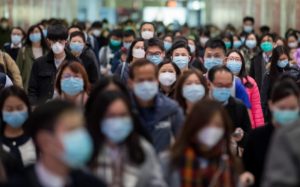
SMS is delivered all over the world in huge rolls. Even the PPE that is ‘made’ in factories here in the UK, will often require the SMS material to be imported. Until recently countries didn’t see the production of SMS material a strategic commodity, so since the early 1990’s much of its production has migrated to low-cost factories in Asia – with China now producing approximately half of the world’s total consumption. In early February, the Chinese government began preventing the export of SMS, so the composite fabric could first be used to assemble masks for their own Chinese population. Literally overnight, half the supply of this vital material was cut-off and prices went up four-fold. PPE manufacturers all over the globe were that concerned about not having the required raw materials, they started to outbid each other and even offer cash upfront to secure stock. This was the starting point of the incredible situation we have today with outrageous pricing.
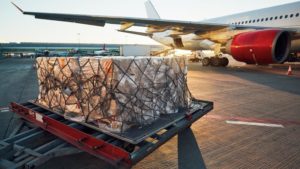
Another key factor in the incredible price hikes of personal protective equipment is down to freight costs. A sudden surge in the demand for dust masks and their immediate requirement to literally save and protect lives around the globe, meant that factories needed to get product to customers… and fast. The problem was compounded by China being ahead of the pandemic timeline and Chinese communities all over the world panic-buying masks to send back to their homeland. In February alone, roughly two billion masks were imported into China… at the most critical time when Covid-19 infection rates were accelerating rapidly around the world, China had literally ransacked the global mask market. The only solution was to speed up lead times from manufacturing plants, meaning traditional shipping methods by sea were replaced by more costly freight by air. During ‘usual times’, air-freight is approximately five times the cost of sea-freight, but the overnight rise in demand meant that the rates to transport cargo in the skies, immediately increased by over 300%. Suddenly, the transportation costs were more than the cost of actually making the products themselves!
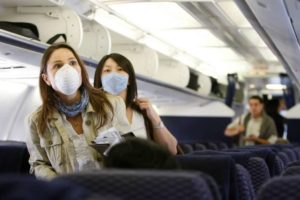
The increase in prices of raw materials and subsequent manufacturing costs, coupled with enormous freight rates, have been the major factors in why personal protective equipment has seen the significant price hikes we are currently experiencing. We have also seen a small number of wholesalers ‘jump on the bandwagon’, in an attempt to ‘make a quick buck’, and in some cases offering products with dubious safety standard accreditation, but the long established stalwart companies out there have generally been transparent with their pricing… although still passing on four or five-fold increases that are unquestionably out of their control. As with any commodity item, which safety masks and other critical PPE items have become, costs will ultimately decrease as supply improves or demand reduces. Whilst the Coronavirus is still in existence and as governments relax lockdown rules whilst encouraging face covering in public areas, there will continue to be an extreme global demand for safety masks. How long this will last for remains to be seen.
Speaking from Protrade’s perspective and going back to my earlier comments about whether our decision to pay ‘over the odds’ for safety masks had backfired… I’d say ‘definitely not’. A significant number of customers have managed to continue working throughout the lockdown period, often to fulfil obligations with various healthcare providers, and more recently personal protective equipment has been readily available for companies to be able to return to work and reopen their factories and workshops. Without an offering of vital safety equipment, this potentially may not have happened for a number of customers, and we would have failed in our commitment to be an important supplier partner to the construction industry.
Protrade has been established since 1973 and one of our key value statements is: ‘We will always do what is morally, ethically and legally correct at all times’. The ethos of the business dictates that any level of profiteering will not be tolerated or accepted. This culture runs deep throughout the whole organisation and will continue to do so. There are many likeminded companies out there, with similar longevity and values to ourselves, and we have all faced similar challenges since the outbreak of Covid-19. The purpose of this blog is to explain the reality of the current situation, with regard to PPE pricing and highlight the root causes. It’s easy to jump to conclusions and make uninformed statements about the integrity of certain organisations, but when you are furnished with the facts… things start to make a lot more sense. As a responsible tools and production consumables supplier, we will continue to tirelessly monitor and canvass the market, to ensure we consistently stock and supply fit for purpose products… always at fair and competitive prices.
